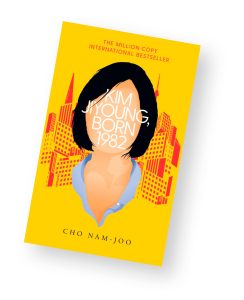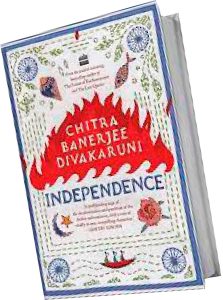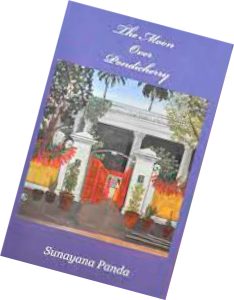People in Places Two short novels set in Seoul and Pondicherry unravel the beating hearts that colour — or discolour — life, … and more
Kim Jiyoung, Born 1982 by the South Korean writer Cho Nam-Joo was our book club’s November read. Originally published in Korean in 2016 and in a crisp English translation by Jamie Chang in 2018, it is reputed to have created a sensation with its ‘riveting, original and uncompromising’ take on gender inequality and discrimination in Korean society. Reading partly like fiction and partly like a report, with source attribution and all, this tightly wrought narrative is a classic example of how local is global. In other words, the mundane, misogynistic, soul-destroying condition an average Korean woman finds herself in, mirrors attitudes pervading societies all over the world, proving that the line between developed and developing nations is thin indeed.
Kim Jiyoung is the middle child, with an older sister and a younger brother. Her status in society is determined early, having been born a daughter. Her mother aborts the third pregnancy and it is only when she is certain that she goes through the fourth, for a boy. Joy! The girls’ growing years revolve entirely around privileges and advantages being provided to their brother, while they share or make do with what remains — food, space, clothes, education, the works.
She grows up, takes up a job, marries, has a child. Through those years she contends with being overlooked for challenges and promotions at work because she is female, and is persuaded by a ‘supportive’ husband to give up her job for the sake of the impending birth. Slowly, she slips into a morass of societal obligations and expectations. There’s no physical abuse but the life that is chalked out for her to lead, filled with duties, fraught with responsibilities, leads inevitably to a flatlining state of mind. Until one day, when she is in her early thirties, it begins to affect her mental health. How this manifests in Jiyoung and what happens to her thereafter, is what the book reveals. However, the larger picture is unmissable, and if it is a woman reading this book, Jiyoung could well be you. The bland style of telling serves to increase a sense of dread.
You could call this a docu-novel, backed up as the story is with detailed references to facts and figures pertaining to South Korea. For instance, in the context of the mother’s abortion: ‘Abortion due to medical problems had been legal for ten years at that point, and checking the sex of the foetus and aborting females was common practice, as if ‘daughter’ was a medical problem. (The reference to misogyny here is to a book called “Statistical Family” by Park Jaehyun.) This went on throughout the 1990s, and in the early 1990s, the very height of the male-to-female ratio imbalance, when the ratio for the third child and beyond was over two-to-one. (Here the reference is to “sex ratio at birth by birth order” from Statistics Korea.).’ Information blends seamlessly with the narrative, making the novel’s central argument forceful while retaining the flow of fiction. Elsewhere we read: ‘In 2014, around the time Kim Jiyoung left the company, one in five married women in Korea quit their job because of marriage, pregnancy, childbirth and childcare, or the education of their young children.’ It’s not surprising that the author, a former television scriptwriter, drew on her own experience as a woman, having herself quit her job after childbirth.
The Moon Over Pondicherry by Sunayana Panda is a completely different cup of tea except that here too there is intent: to showcase the Union Territory of Pondicherry. And the author does a good job of it so that we get a nuanced sense of the place, its history and what makes, or breaks, its people. The story begins in 1910 when Pondicherry was still very much a French bastion, with all aspects of political, economic and social life ruled by the French colonialists. Over time, we see how things change, or rather how relationships integrate and/or disintegrate, to create Pondicherry’s curious smorgasbord of various historical influences.
Sunayana takes us through the streets and parks, along the beach and past monuments that still survive, stopping to gaze at the architecture, participate in street games, bow at places of worship, feel the sea breeze, and partake of the many cuisines on offer. Love unravels as well as disagreements as the generations come and go. Slowly, Pondicherry develops an interesting, inclusive character even as it nurtures its quarters: French, Tamil, fishing, Aurobindo Ashram, Auroville… The traditional, the bohemian, the in-between, coexist. Many locals are descended from the commingling of French and Tamil, local names have a French flavour, French and Creole cuisine rules and people visit from all parts of India and the world for rest and recreation.
The writing is simple yet surprisingly engaging, making The Moon Over Pondicherry an interesting and informative read. We see Pondicherry from the inside, through the hearts and minds of residents, and begin to understand its special appeal. The author showcases the Pondicheriness of Pondicherry, now officially called Puducherry, with affection and detail. However, you are unlikely to find the book anywhere except in Pondicherry, or you might want to purchase it from the author directly.
For the ‘more’ of the blurb, there is Independence by Chitra Banerjee Divakaruni, a book I can’t put down. Surprising, because I haven’t read any of her other books so far, mainly because I don’t much care for mythology-based fiction and I was under the misconception that much of her writing was in this genre. Not so this one. It tells the story of three sisters living in a village near Calcutta during the fag end of India’s struggle for independence. Partition is looming, the nation is in turmoil and they grapple with their own, individual challenges while caught in the impending circumstances of history.
The narrative surges forward steadily and keeps the reader wanting to know what happens next. If you are of my vintage, you will be able to fill in what’s unsaid thanks to your own understanding or knowledge of India’s history of the last hundred years or so. You also more fully understand the quotation from the well-known, path-blazing writer Amrita Pritam, at the start of the novel, as you read on: ‘There are many stories which are not on paper; they are written on the minds and bodies of women.’ Especially, this will resonate with readers of my age. My maternal grandmother, for instance, was full of stories of Independence, even as she had an unending store of stories from the epics. My mother had her own stories to share, many of them ‘written on the minds and bodies of women’. I recall in particular her saying how Gandhiji said that women need never be afraid because they had the most potent weapon in their hands: chilli powder from their own kitchens.
Deepa the oldest of the three sisters is in love with a youth leader of the Muslim League, Jamini the devout and devoted middle one helps her mother stitch kantha, and Priya the youngest wants to be a doctor like her father who is a tragic victim of communal violence. Through their experiences they learn what it means to be independent, and at what price it comes. It’s a reminder that the freedom we take for granted was hard fought.
The columnist is a children’s writer and senior journalist



